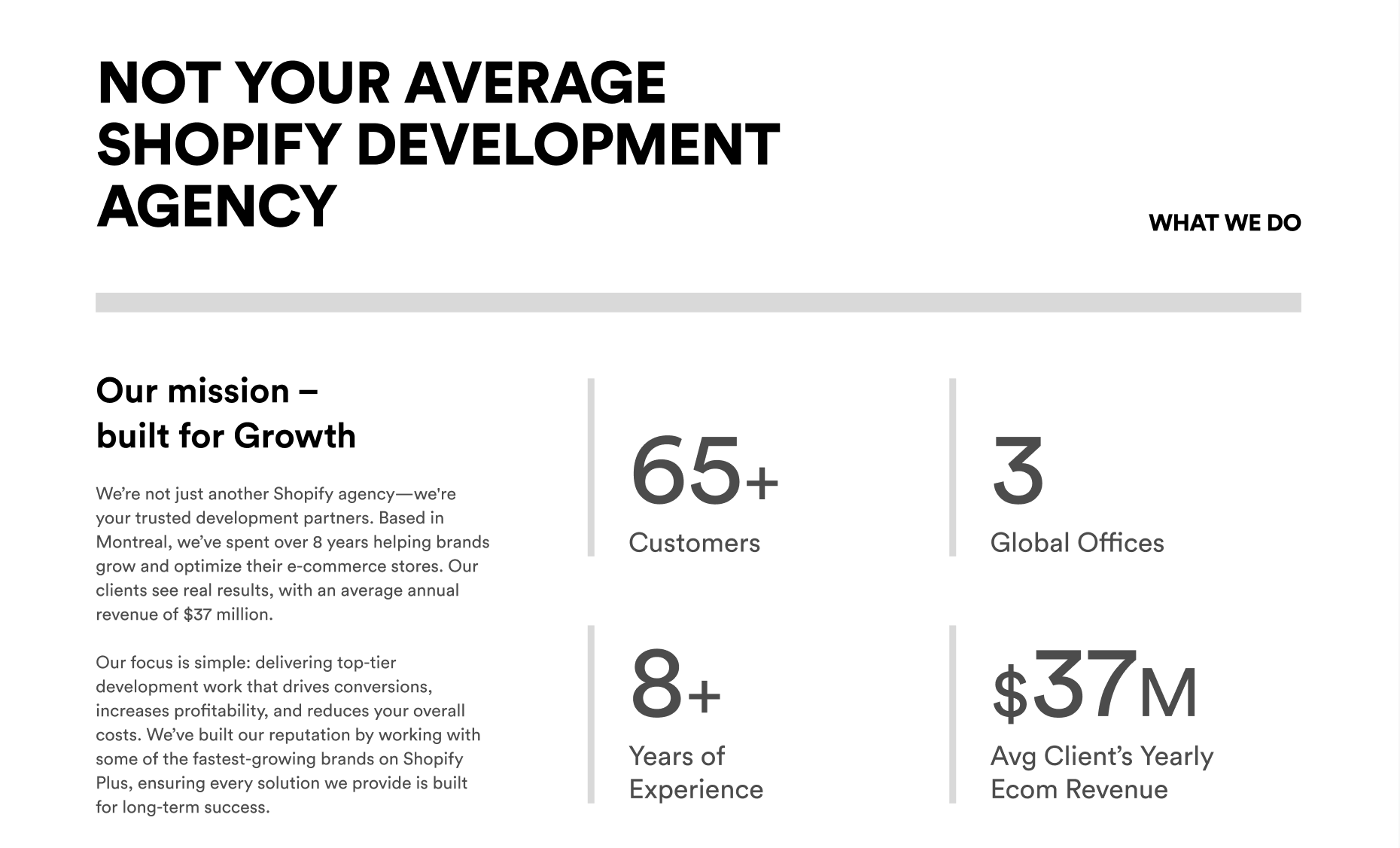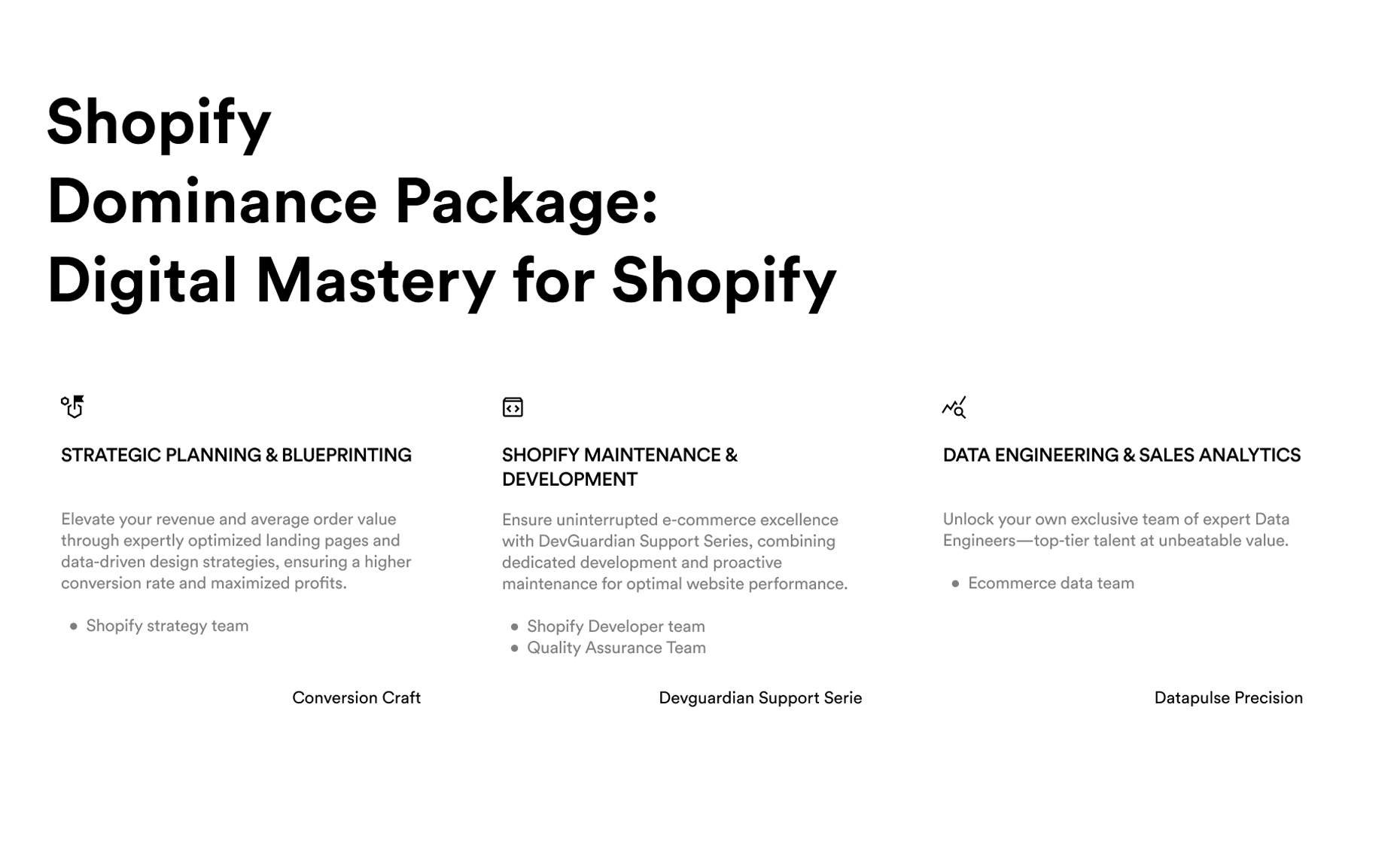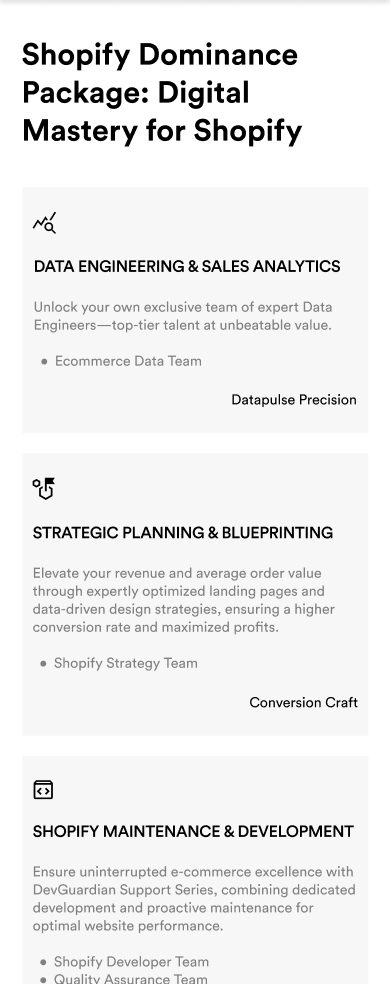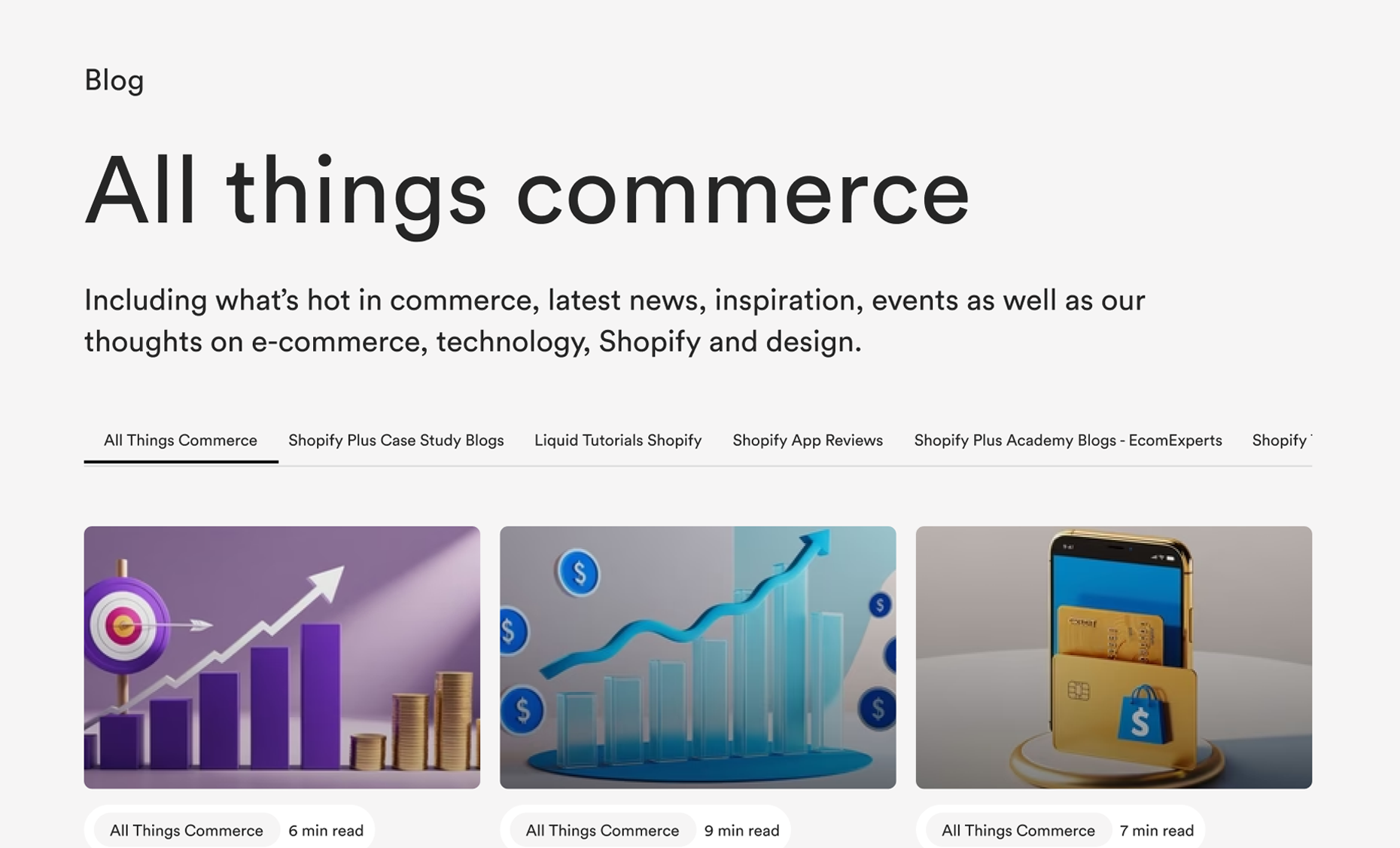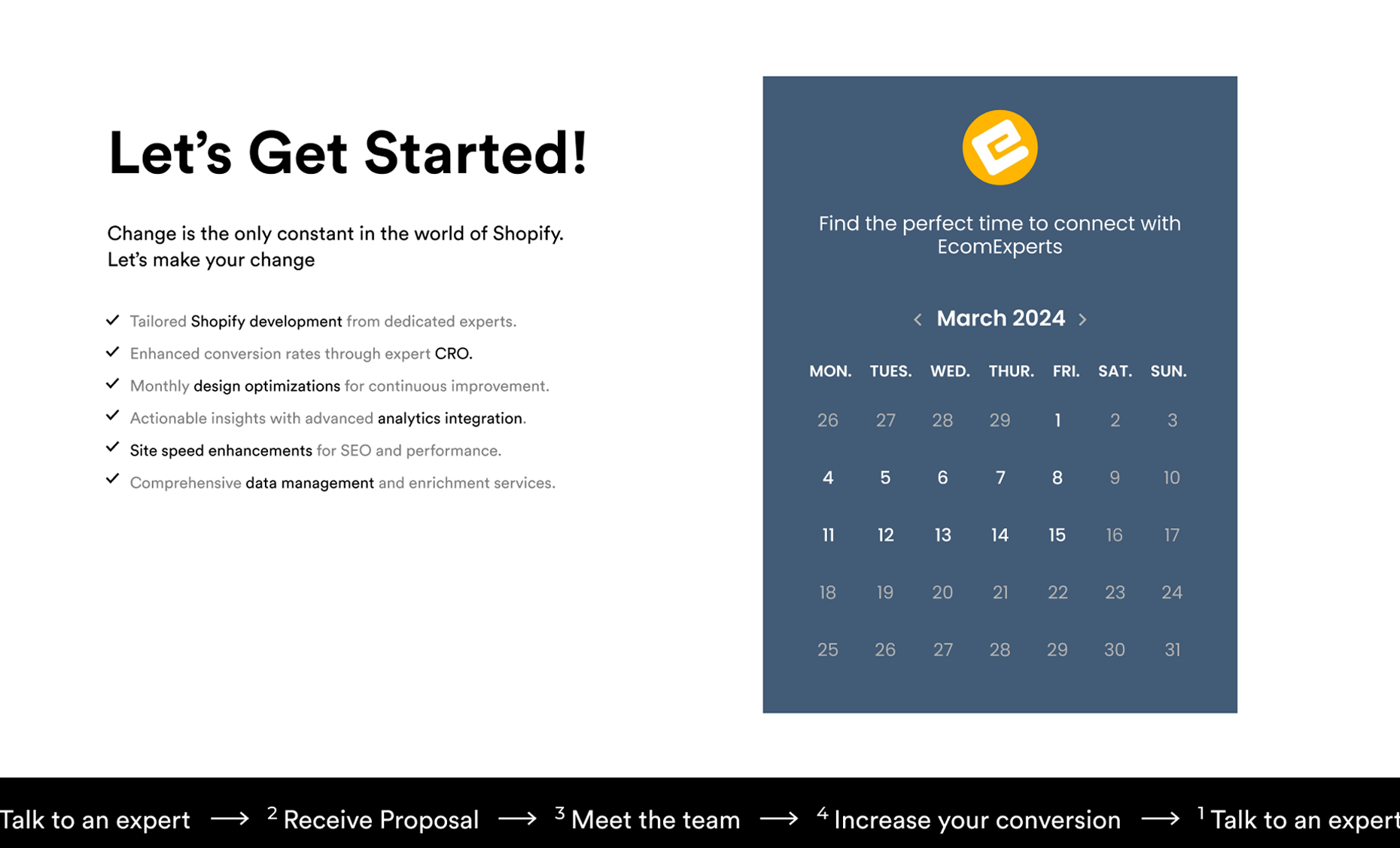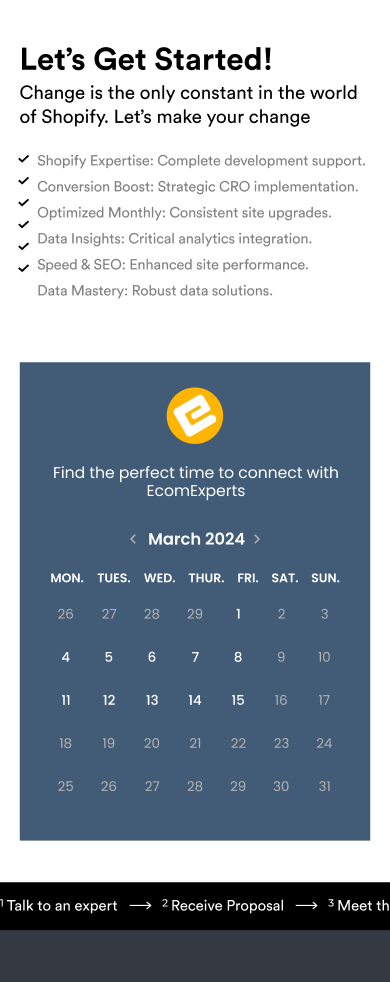Starting your online store? One of the biggest—and most crucial—decisions you'll make is picking the right e-commerce platform. With so many options out there, the choice can be overwhelming.
But here’s the deal: your platform isn’t just the foundation of your store; it directly impacts how you grow, how much you sell, and how smooth your operations run.
Choosing the Right E-Commerce Platform in 2024-25
Do you need scalability? Low transaction fees? Easy customization? It all depends on your business needs, and trust me, what works for one brand might not work for another. This guide is here to make that decision process a lot easier.
In this blog, we’re breaking down the 10 best e-commerce platforms for 2024-25—with the pros, cons, features, and pricing you need to make an informed choice. Whether you’re just starting or looking to upgrade your current platform, we’ve got you covered.
So, let’s dive into it and find the perfect fit for your online store!
1. Shopify

Shopify is the go-to e-commerce platform for many entrepreneurs and businesses looking to scale up quickly. It's built with flexibility and growth in mind, making it ideal for brands that are looking to expand.
Shopify is known for its user-friendly interface, but it also offers powerful features that help streamline your business operations, making it easier to manage your store as it grows.
Key Features of Shopify:
- All-in-One E-commerce Platform: Handles everything from marketing and payments to secure checkout and shipping.
- Multiple Sales Channels: Sell via online store, social media, marketplaces like Amazon, eBay, and even physical stores with Shopify POS.
- Shopify App Store: 8,000+ apps to add custom functionality for marketing, SEO, product management, and more.
- Customizable Templates: Over 70+ themes, both free and paid, that are mobile responsive and highly customizable.
- Shopify Payments: Built-in payment gateway, plus integration with third-party providers (PayPal, Stripe, etc.).
- Shopify Scripts: For automating discounts and personalized promotions during checkout for higher conversions.
- Built-in SEO Tools: Automatically generated sitemaps, customizable meta tags, and built-in analytics.
- Abandoned Cart Recovery: Automated emails to remind customers to complete their purchases.
- Mobile-Friendly: Manage your store on the go with the Shopify app.
- 24/7 Customer Support: Access to chat, email, and phone support.
Pros:
- Scalability: Shopify excels at growing with your business. Whether you’re just starting out or scaling up to thousands of orders per day, Shopify is built to handle it.
- App Ecosystem: The Shopify App Store has over 6,000 apps, which allow you to add custom functionality with ease. Whether you need an SEO boost, a marketing push, or enhanced customer service, there's an app for that.
- Built-in Payment Gateway: Shopify Payments saves you from the hassle of third-party gateways. It's fast, reliable, and seamlessly integrated.
- Customizable Themes: Shopify offers a range of beautiful, mobile-friendly themes. For those who need something more specific, Shopify Scripts allows advanced users to customize checkouts and create unique discount rules.
Cons:
- Transaction Fees: Unless you use Shopify Payments, you’ll face additional transaction fees, which can add up for high-volume stores.
- Customization Limits: While Shopify offers a lot of customization, it’s not as flexible as some open-source platforms like WooCommerce. Complex customizations might require hiring a Shopify Plus development agency.
- Costly Apps: The platform’s best features often come from third-party apps, which can significantly increase your monthly costs.
Pricing:

- Basic Shopify: $19/month
- Shopify: $49/month
- Advanced Shopify: $299/month
- Shopify Plus (For enterprise-level businesses): Custom pricing (usually starts at $2,000/month)
Who is Shopify Best For?
Shopify is a perfect match for high-growth businesses that need a robust, scalable solution. Whether you're a growing brand or an established business, Shopify provides all the tools necessary to create a high-performing, customer-centric online store.
If you’re serious about scaling and need an all-in-one platform with excellent third-party support, Shopify should be on your radar.
2. Squarespace

Squarespace is a visually stunning platform known for its sleek templates and ease of use. While it’s not as feature-heavy as Shopify, it’s an excellent choice for small to medium-sized businesses that prioritize design and want a user-friendly platform for setting up an online store quickly.
Squarespace is particularly favored by creative entrepreneurs—think artists, designers, and photographers—who want to showcase their work with style.
Key Features of Squarespace:
- Beautiful Templates: Award-winning, mobile-responsive designs that cater to all industries.
- Drag-and-Drop Editor: No coding required, making it easy to design your site.
- Built-In E-Commerce Tools: Support for digital and physical products, including inventory management, order tracking, and tax automation.
- Integrated Marketing Tools: Built-in email marketing, social media integrations, and SEO settings.
- Abandoned Cart Recovery: Send automatic emails to customers who leave items in their carts.
- Membership and Subscription Selling: Sell memberships or subscriptions directly through Squarespace.
- Analytics Dashboard: Track website visitors, sales, and other key metrics.
- Secure Hosting: Includes free SSL certificates and robust hosting.
Pros:
- Beautiful Templates: Squarespace is known for its award-winning, mobile-responsive templates. You can easily build a professional-looking site without needing to hire a designer.
- All-in-One Platform: With Squarespace, you get everything in one package—hosting, domain management, design tools, and e-commerce features—making it a hassle-free experience.
- User-Friendly Interface: Squarespace is designed to be intuitive. Whether you’re new to e-commerce or tech-savvy, you’ll find the drag-and-drop interface easy to navigate.
- No Transaction Fees: Unlike Shopify, Squarespace doesn’t charge transaction fees on any of its e-commerce plans.
Cons:
- Limited Scalability: Squarespace is great for small businesses, but it may not scale as well for high-volume stores. If your store grows significantly, you may find the features limiting compared to more advanced platforms like Shopify.
- Fewer App Integrations: While Shopify has an expansive app ecosystem, Squarespace has a limited range of third-party integrations. If you need specialized tools like advanced SEO or marketing apps, you might find it lacking.
- Lack of Advanced E-Commerce Features: Although Squarespace has solid built-in e-commerce functionality, it’s not as feature-rich for online selling compared to platforms like Shopify or BigCommerce.
Pricing:

- Personal: $16/month (not e-commerce enabled)
- Business: $23/month
- Basic Commerce: $28/month
- Advanced Commerce: $52/month
Who is Squarespace Best For?
Squarespace is perfect for small businesses, creative professionals, or entrepreneurs who value design and simplicity over extensive features.
It’s a good fit for brands with a small catalog that want an easy, all-in-one platform to manage their store without diving into complex functionalities.
3. BigCommerce

BigCommerce is a powerful platform tailored for growing businesses that need robust e-commerce functionalities without extensive technical requirements.
If you’re looking for a platform that can handle larger product catalogs and complex operations, BigCommerce stands out with its enterprise-grade features and scalability.
Key Features of BigCommerce:
- Multi-Channel Selling: Sell on Amazon, eBay, Facebook, Instagram, and Google Shopping.
- Advanced SEO Features: Built-in features such as customizable URLs, automatic sitemaps, and AMP (Accelerated Mobile Pages).
- No Transaction Fees: Unlike many competitors, BigCommerce does not charge transaction fees, even when using third-party gateways.
- Large Product Catalog Support: Ideal for businesses with extensive product inventories.
- Customizable Checkout: Customize your checkout flow to match your branding.
- BigCommerce App Marketplace: Access to various apps for accounting, shipping, and marketing.
- B2B Features: Bulk pricing, customer groups, and advanced shipping options for B2B companies.
- Responsive Templates: Over 100 responsive templates, both free and paid.
- Advanced Analytics: Built-in analytics to track performance and customer behavior.
Pros:
- Scalability: BigCommerce is ideal for businesses that need to scale quickly. Whether you're adding thousands of products or handling surges in traffic, BigCommerce’s infrastructure can manage growth without slowing down.
- No Transaction Fees: Unlike Shopify, BigCommerce doesn’t charge transaction fees, which can make a big difference as your sales grow.
- Multi-Channel Selling: With BigCommerce, you can easily sell across multiple platforms like Amazon, eBay, Facebook, Instagram, and more, streamlining your inventory and order management.
- Advanced SEO Features: BigCommerce provides extensive SEO tools that make it easier for your online store to rank higher on search engines. This includes customizable URLs, automatic sitemaps, and metadata management.
- Built-In Features: BigCommerce comes with many built-in features such as customer groups, advanced reporting, and abandoned cart recovery without needing third-party apps, which can save you on additional fees.
Cons:
- Steeper Learning Curve: BigCommerce’s advanced features can be overwhelming for beginners. It’s packed with options, which can make it a bit harder to navigate compared to more beginner-friendly platforms like Squarespace.
- Pricing Based on Sales Volume: BigCommerce automatically upgrades your plan once you exceed certain sales thresholds, which can be an unexpected cost for rapidly growing businesses.
- Limited Free Themes: The selection of free themes in BigCommerce is more limited compared to Shopify or Squarespace. While there are premium options available, they come with an extra price tag.
Pricing:

- Standard: $29/month
- Plus: $79/month
- Pro: $299/month
- Enterprise: Custom pricing
Who is BigCommerce Best For?
BigCommerce is the go-to choice for fast-growing businesses that need advanced e-commerce features without the need for constant app integrations.
It’s great for larger businesses that are already scaling and want a platform that can manage complex sales operations, handle high-volume traffic, and streamline multi-channel sales.
4. WooCommerce

If you're already using WordPress for your website, WooCommerce is one of the most flexible and powerful e-commerce platforms available.
It's a WordPress plugin that allows you to turn your existing site into a fully functional online store. Since WooCommerce is open-source, it provides endless customization options for those who are comfortable working with WordPress.
Key Features of WooCommerce:
- Open-Source Customization: As a WordPress plugin, WooCommerce offers extensive customization options for developers.
- Large Extension Marketplace: Access to thousands of plugins for SEO, marketing, shipping, and payment gateways.
- Full WordPress Integration: Seamlessly integrates with WordPress themes, plugins, and content management.
- Unlimited Product Listings: Support for unlimited products, categories, and variations.
- Advanced Analytics: Built-in reporting features to track sales, revenue, and customer behavior.
- Flexible Payment Gateways: Support for all major payment providers, including PayPal, Stripe, and Authorize.net.
- Inventory Management: Built-in tools to manage stock levels, backorders, and product variations.
- Mobile-Friendly: Responsive themes and mobile-optimized store management.
Pros:
- Full Customization: WooCommerce is incredibly flexible, allowing you to modify and control every aspect of your store, from design to functionality. Whether you're a coding expert or using pre-built templates, WooCommerce adapts to your needs.
- Vast Plugin Library: As a WordPress plugin, WooCommerce integrates seamlessly with a huge library of plugins, allowing you to add everything from SEO tools to payment gateways and advanced shipping options.
- Cost-Effective: While WooCommerce itself is free, you only need to pay for the features you use. This can be ideal for small businesses looking to minimize costs by only adding essential paid features as needed.
- Scalable for Large Stores: WooCommerce is known for handling large product inventories without compromising speed or performance. This makes it a great option for both small and enterprise-level stores.
- Community Support: Being open-source, WooCommerce benefits from a large community of developers who constantly create new plugins, themes, and resources, giving you access to a wealth of free and premium options.
Cons:
- Not Beginner-Friendly: Unlike Shopify or Squarespace, WooCommerce is a bit more technical. It requires some understanding of WordPress, plugins, and hosting setups. This learning curve can be steep for beginners.
- Additional Costs for Hosting and Security: WooCommerce itself is free, but you'll need to pay for hosting, security, and possibly premium themes or plugins to get the most out of it.
- Maintenance: Since it’s a WordPress plugin, WooCommerce requires more hands-on maintenance. This includes plugin updates, security patches, and server management, which may not be ideal for businesses without technical expertise.
Pricing:
- Free to install, but hosting, security, and premium plugins/themes can range from $10 to $200+ per month, depending on your needs.
Who is WooCommerce Best For?
WooCommerce is perfect for businesses already using WordPress or those who want maximum control over their online store's design and functionality.
It’s a good fit for those with technical expertise or access to developers who can handle the more technical aspects of running a WooCommerce store.
With its open-source model, WooCommerce gives you unparalleled flexibility, but that comes with the responsibility of managing the platform yourself.
5. Magento

Magento, now Adobe Commerce, is one of the most powerful e-commerce platforms for businesses that need complete customization and flexibility.
It's an open-source platform, which means if you have a development team or a skilled agency, you can tailor your store to meet specific needs. It's designed for larger businesses that require robust functionality and scalability.
Key Features of Magento:
- Highly Customizable: Open-source platform with full flexibility for custom development.
- B2B Features: Advanced pricing, custom catalogs, and seamless B2B buying experiences.
- Scalability: Handles large product catalogs and high traffic loads, ideal for enterprise-level businesses.
- Advanced SEO: Full control over meta tags, URLs, and sitemaps for better search engine rankings.
- Multi-Store Management: Manage multiple stores from one admin panel.
- Magento Marketplace: Thousands of extensions and themes for additional functionality.
- Integrated Inventory Management: Advanced stock control, tracking, and automated stock updates.
- Progressive Web Applications (PWA): Build mobile-friendly sites with Magento’s PWA studio.
- API Integrations: Easily connect with third-party services such as ERPs and CRMs.
Pros:
- Highly Customizable: Magento is open-source, giving you the freedom to customize every aspect of your store—from product pages to the checkout process. You can create completely unique experiences tailored to your brand.
- Scalability: Magento is designed to scale with your business. Whether you’re handling thousands or millions of SKUs, Magento can manage it efficiently, making it perfect for large, enterprise-level stores.
- Built for International Sales: Magento is excellent for businesses that operate in multiple countries. It supports multiple currencies, languages, and tax rates, allowing you to expand globally with ease.
- Comprehensive Feature Set: Out of the box, Magento offers a rich set of features, including advanced SEO tools, multichannel integration, customizable checkout, and product management features.
Cons:
- Complex to Set Up: Because of its customization options, Magento is not beginner-friendly. It requires a dedicated development team or agency to set up and maintain, which can be a significant investment in both time and money.
- Costly to Operate: While the community edition of Magento is free, there are significant costs associated with hosting, development, and ongoing maintenance. For larger businesses, the total cost can be higher than other platforms.
- High Server Requirements: Magento is resource-intensive, meaning you’ll need to invest in good hosting services to ensure your site runs smoothly, especially if you’re expecting high traffic volumes.
Pricing:
- Magento Open Source (Free): You’ll need to pay for hosting, development, and extensions separately.
- Magento Commerce: Pricing is custom and based on your business size, but it generally starts at around $22,000/year for larger businesses.
Who is Magento Best For?
Magento is ideal for large-scale businesses that need complete flexibility and customization. If you have a team of developers and want a platform that can grow with you, Magento is an excellent option.
However, for smaller businesses or those with limited technical resources, it may be overwhelming and costly to maintain.
6. Wix

Wix is a website builder known for its easy drag-and-drop interface, which also extends into its e-commerce platform.
Wix website builder is perfect for small to medium-sized businesses looking for creative control without needing extensive coding knowledge. With its large selection of templates and built-in tools, Wix is a great choice for those wanting to quickly launch an attractive and functional online store.
Key Features of Wix:
- Drag-and-Drop Builder: No coding needed; customize layouts with ease using an intuitive interface.
- 500+ Designer Templates: Choose from a variety of templates, all mobile-responsive.
- E-Commerce Tools: Support for product catalogs, integrated payment gateways (PayPal, Stripe, etc.), automated taxes, and shipping setup.
- App Market: Access third-party apps for SEO, marketing, social media integration, and customer service.
- SEO-Friendly: Wix SEO Wiz guides you through optimizing your store for search engines.
- Ascend by Wix: A built-in marketing suite offering email marketing, social media tools, and customer relationship management.
- Multilingual Support: Create websites in multiple languages to cater to international customers.
- Secure Hosting: Comes with a free SSL certificate and reliable hosting with 99.9% uptime.
Pros:
- User-Friendly Interface: Wix is widely known for its ease of use, making it a great platform for beginners. Its drag-and-drop builder allows you to design an online store without needing any coding skills, giving you full control over your store’s appearance and layout.
- Highly Customizable Templates: Wix offers hundreds of customizable templates, making it easy to design a visually appealing online store. You can tweak every element, allowing for a unique look tailored to your brand.
- All-in-One Solution: With Wix, you don’t need to worry about hosting or third-party integrations for basic store functionality. Wix offers an all-in-one package, including hosting, SEO tools, and marketing solutions to get your store running quickly and efficiently.
- Integrated Tools for Marketing & SEO: Wix provides a suite of built-in marketing tools, including email campaigns, abandoned cart recovery, and SEO optimization, helping businesses attract more traffic and sales without needing third-party apps.
Cons:
- Not Ideal for Large Stores: While Wix is great for small to medium-sized businesses, it may struggle to handle large stores with extensive inventories or high levels of traffic. For very large e-commerce operations, platforms like Shopify or BigCommerce may be more suitable.
- Limited Scalability: Wix doesn’t offer the same level of scalability as more specialized e-commerce platforms, making it less ideal for businesses that anticipate rapid growth or plan to expand into multi-channel retailing
Pricing:

Wix offers four pricing plans for e-commerce businesses, catering to different needs and levels of service:
- Business Elite: $159/month
- Business: $36/month
- Core: $29/month
- Light: $17/month
Who is Wix Best For?
Wix is ideal for small business owners, entrepreneurs, or creatives who want a visually appealing store without the hassle of dealing with code or complex setups.
It’s a great choice if you’re looking for a quick, affordable, and flexible solution that offers creative freedom and a beautiful user interface.
7. Square Online (Formerly Weebly)

Square Online, the evolution of Weebly, is ideal for small to medium-sized businesses seeking simplicity and affordability in launching their e-commerce stores.
With its deep integration with Square’s payment and POS systems, this platform is designed to offer both a seamless online shopping experience and robust support for brick-and-mortar operations.
The platform is renowned for its ease of use, offering an intuitive drag-and-drop website builder that allows anyone—regardless of technical experience—to create a professional-looking store in no time.
Key Features of Square Online:
- POS Integration: Square Online seamlessly integrates with Square’s point-of-sale (POS) systems, making it a great choice for businesses that also have physical stores. You can track sales, manage inventory, and unify online and offline sales easily.
- Multi-Channel Selling: Square Online supports multi-channel sales, enabling you to sell across various platforms like Instagram, Facebook, and in-person through Square POS. This flexibility helps retailers reach customers on different sales channels while managing everything from a single dashboard.
- Abandoned Cart Recovery: For e-commerce stores, recovering lost sales is crucial, and Square Online’s performance plan offers abandoned cart recovery emails, which automatically remind shoppers to complete their purchases.
- Easy-to-Use Website Builder: Square Online retains Weebly’s hallmark drag-and-drop website builder, making it incredibly easy for non-technical users to set up their online stores quickly.
- Free E-Commerce Tools: Even in the free version, users have access to important e-commerce features like unlimited product listings, SEO tools, and automated tax calculations.
Pros:
- Seamless POS Integration: Perfect for brick-and-mortar stores that also sell online, making inventory management across both channels a breeze.
- Free Plan Available: One of the few platforms offering a free plan with e-commerce functionality—ideal for startups.
- Beginner-Friendly Interface: Drag-and-drop builder with pre-designed templates ensures even non-tech-savvy users can create a functional and stylish store.
- Affordable Pricing Tiers: Extremely competitive pricing for businesses looking to start small and scale up.
Cons:
- Limited Customization: Square Online doesn’t offer as much design flexibility as competitors like Shopify or WordPress, which might frustrate users seeking greater control.
- Ads on Free Plan: While the free plan is attractive, it comes with the drawback of Square ads on your site, which can detract from the professionalism of your brand.
- Basic Features in Lower Tiers: Features like abandoned cart recovery and product reviews are reserved for higher-tiered plans, limiting their availability to lower-budget businesses.
Square Online Pricing & Plan:

- Free Plan
- Personal Plan: $10 per month
- Professional Plan: $12 per month
- Performance Plan: $26 per month
Who is Square Online Best For?
Square Online is best for brick-and-mortar retailers or small businesses looking to build a hybrid sales channel between in-store and online.
The tight integration with Square’s POS system ensures that it’s ideal for retailers wanting to manage both physical and digital inventories in real-time without any hassle.
8. Shift4Shop

Shift4Shop offers a feature-rich platform that caters to businesses of all sizes, from startups to large enterprises. It's known for providing robust e-commerce tools like SEO optimization, marketing integrations, and multi-channel selling capabilities.
The platform's highlight is its free plan for businesses using Shift4's payment processing system, making it budget-friendly for merchants looking for a cost-effective solution.
Key Features of Shift4Shop:
- Free Plan for Shift4 Users: A full-featured free plan is available for merchants using Shift4 as their payment processor, allowing businesses to access premium features without the cost.
- Advanced SEO Tools: Built-in SEO features to boost your online visibility and rankings.
- Multi-Channel Selling: Sell across platforms like Amazon, eBay, and social media, all from a single dashboard.
- Marketing Tools: Abandoned cart saver, loyalty programs, and integrated email marketing help drive sales.
Pros:
- Free Plan for Shift4 Users: One of the only platforms that offer a fully functional e-commerce solution for free, as long as you use Shift4 for payment processing.
- Feature-Rich Even on Lower Plans: Provides access to advanced SEO, marketing tools, and customer engagement tools even in its free tier.
- Built-in Blogging Platform: Shift4Shop includes a robust built-in blog platform, helping businesses attract organic traffic through content marketing.
- Highly Customizable: Shift4Shop offers a high level of customization for storefronts, allowing businesses to create a unique shopping experience.
Cons:
- Not as User-Friendly as Competitors: The sheer number of features and options can make the platform more complex to navigate, especially for beginners.
- Limited Themes: Compared to other platforms like Shopify or Squarespace, the theme selection is more limited and not as visually modern.
- Transaction Fees for Non-Shift4 Payments: If you don’t use Shift4 processing, you’ll be subject to a subscription fee and transaction fees, making it less appealing for businesses with established payment gateways.
Shift4Shop Pricing & Plan:
- Free Plan: $0/month (with Shift4 processing)
- Basic Plan: $29/month
- Plus Plan: $79/month
- Pro Plan: $229/month
Who is Shift4Shop Best For?
Shift4Shop is ideal for businesses looking for an affordable, feature-packed platform without compromising on functionality.
If you’re using Shift4 for payment processing, this is an excellent free option, making it perfect for small businesses and startups focused on cost-efficiency while needing access to advanced e-commerce tools.
9. Volusion

Volusion is an e-commerce platform tailored to small and medium-sized businesses, with a focus on simplicity, ease of use, and comprehensive store management.
It offers an array of built-in tools to help online store owners with marketing, analytics, and inventory management, making it a solid choice for those seeking an all-in-one platform for managing their e-commerce business.
Key Features of Volusion:
- In-Built Marketing Tools: Features like SEO tools, social media integration, and newsletters help increase store visibility.
- Inventory Management: Offers advanced inventory tracking and order management, allowing users to streamline their operations.
- Payment Gateways: Volusion supports a range of payment options, including PayPal, Stripe, and Apple Pay.
- Mobile-Optimized Themes: Mobile-friendly themes ensure the store looks good across all devices, essential for today’s mobile-first customers.
Pros:
- Built-In SEO Tools: Helps improve your store's search engine rankings with on-page SEO optimization.
- Mobile-Optimized: Templates are fully responsive, providing a seamless experience for mobile shoppers.
- Comprehensive Analytics: Volusion offers advanced analytics and reporting tools to help you track performance and make data-driven decisions.
- No Transaction Fees: Unlike some platforms, Volusion doesn’t charge transaction fees on sales, maximizing your profit margins.
Cons:
- Limited Design Flexibility: While the themes are clean and mobile-optimized, customization options can be somewhat limited compared to platforms like Shopify or BigCommerce.
- Limited App Marketplace: Volusion’s app store is smaller than competitors, meaning fewer third-party apps and plugins for customization.
- Dated User Interface: Some users find Volusion's dashboard to be less modern and harder to navigate than newer platforms.
- Limited Product Options: If you have highly complex products or many variants, Volusion may not offer the flexibility you need.
Volusion Pricing:

Volusion offers several pricing plans to suit different business needs:
- Personal Plan: $35/month (Up to 100 products)
- Professional Plan: $79/month (Up to 5,000 products)
- Business Plan: $299/month (Unlimited products)
- Prime Plan: Custom pricing for enterprises with high volume sales
Who is Volusion Best for?
Volusion is ideal for small-to-medium-sized businesses looking for an all-in-one solution that includes marketing, inventory management, and data analysis, without having to pay transaction fees.
It’s a solid choice for entrepreneurs who want to get an e-commerce business up and running quickly, especially those with a moderate number of products and a focus on SEO.
10. PrestaShop

PrestaShop is a versatile open-source e-commerce platform that has been around for over a decade. It offers full customization of online stores, with a wide array of features and modules designed to cater to small-to-medium businesses as well as larger enterprises.
The platform's flexibility and scalability make it a popular choice among those who want control over their store's design and functionality without being locked into a proprietary system.
Key Features of PrestaShop:
- Open-Source Flexibility: PrestaShop’s open-source nature allows for extensive customization, making it perfect for developers or businesses with specific technical requirements.
- Large Module Marketplace: With thousands of add-ons, you can enhance your store with features such as payment gateways, SEO tools, and marketing modules.
- Multi-Language & Multi-Currency: Built-in support for multiple languages and currencies enables you to easily target a global customer base.
- SEO-Friendly: PrestaShop includes a host of SEO tools to optimize product listings, meta descriptions, and URLs, helping you rank better on search engines.
Pros:
- Customization Freedom: Its open-source framework allows for limitless customizations and flexibility, making it ideal for businesses with unique requirements.
- No Transaction Fees: PrestaShop doesn't charge transaction fees, giving merchants full control over their profits.
- Large Community Support: The platform boasts a large developer community, offering a wealth of resources and forums to troubleshoot issues.
- Scalable Solution: Suitable for businesses of all sizes, from startups to large-scale operations, with the ability to scale as your business grows.
Cons:
- Technical Know-How Required: PrestaShop requires a higher level of technical knowledge to set up and maintain compared to platforms like Shopify or Wix.
- Paid Add-ons: While the base platform is free, many advanced features require purchasing paid add-ons or hiring a developer for implementation.
- Performance Issues: Without the right hosting solution or technical optimization, PrestaShop stores can experience slow load times, particularly as they scale.
PrestaShop Pricing:
PrestaShop itself is free to download and use. However, additional costs arise from hosting, domain registration, security, and paid add-ons or themes.
Hosting services typically range between $5 and $50 per month, depending on the provider and scale of your store. Modules and themes can range from $50 to $500.
Who is PrestaShop Best for?
PrestaShop is ideal for businesses that have access to technical resources or developers who can manage an open-source platform.
It’s especially suited for businesses that need a highly customized store or have unique business processes that can’t be met by out-of-the-box solutions.
If you're looking for a flexible, scalable platform that allows complete control over your online store, PrestaShop may be the right fit.
How to Find the Right E-Commerce Platform for Your Needs
Choosing the right e-commerce platform for your business can be a game-changing decision.
With so many options available, it’s essential to evaluate platforms based on your specific needs, long-term goals, and customer experience expectations. Here are key factors to consider when choosing the best platform for your e-commerce store:
1. Business Size and Growth Potential
When evaluating e-commerce platforms, think about where your business is now and where you expect it to be in the future. Some platforms are better suited for smaller businesses with straightforward needs, while others can handle large, complex operations with scalability in mind.
- Small Businesses: If you’re just starting, platforms like Squarespace or Weebly (Square Online) may provide everything you need at an affordable price with easy-to-use tools.
- Medium to Large Businesses: Platforms like Shopify or BigCommerce are designed for growing businesses with a robust suite of features, apps, and scalability to handle higher sales volumes and complex inventory management.
Tip: Choose a platform that can grow with your business. Avoid platforms that could limit your store’s potential by requiring costly migrations in the future.
2. Budget and Pricing Plans
Your budget is a huge factor when choosing the right e-commerce platform. Platforms range in price from affordable monthly subscriptions to enterprise-level platforms with custom pricing.
- Entry-Level Platforms: Wix and Square Online offer basic plans with low upfront costs, making them ideal for businesses on a budget.
- Advanced Features: Shopify and BigCommerce may cost more but offer advanced features, robust analytics, and high-level support that justify the price for rapidly growing brands.
Tip: Don’t just consider the platform's monthly subscription. Account for transaction fees, payment processing costs, and add-ons like apps or themes.
3. Ease of Use
If you don’t have an in-house developer, ease of use becomes critical. Look for platforms with drag-and-drop builders, simple setup processes, and user-friendly dashboards.
- Best for Beginners: Wix and Squarespace are highly intuitive platforms that allow users to set up stores without technical knowledge.
- Advanced Customization: For brands looking for more control, Shopify offers flexibility with easy customizations, while platforms like Magento are more technical but offer complete freedom for developers.
Tip: If you don’t have technical expertise, opt for platforms with user-friendly interfaces and built-in customer support. This allows you to focus on growing your business instead of navigating technical complexities.
4. Design Flexibility and Templates
Your brand’s design plays a significant role in the customer experience. Some platforms offer more flexibility when it comes to customizing your store’s design and layout, while others offer ready-to-use templates.
- Highly Customizable: Platforms like Shopify and Squarespace offer a wide range of modern templates and design customization options to create a unique storefront.
- Template-Based: Platforms like Volusion or Big Cartel offer fewer customization options but come with pre-designed templates that are ready to launch.
Tip: If design is a critical part of your brand identity, make sure the platform offers robust customization options without sacrificing ease of use.
5. Features and Third-Party Integrations
Each e-commerce platform offers different built-in features, but the ability to integrate third-party apps is a must for many businesses.
- Apps and Extensions: Shopify and BigCommerce excel when it comes to app marketplaces and integrations. They offer a wide variety of apps to extend store functionality, from marketing tools to advanced analytics.
- Basic Features: Platforms like Weebly and Squarespace offer fewer third-party integrations but come with strong built-in features.
Tip: Choose a platform that integrates seamlessly with the tools you already use, such as accounting software, email marketing apps, or payment gateways.
6. SEO and Marketing Capabilities
No matter how beautiful your store looks, customers won’t come unless they can find you online. Look for platforms with strong SEO tools and marketing features to help drive traffic to your store.
- Top Marketing Features: Shopify and BigCommerce offer excellent SEO tools, email marketing integrations, and social media integrations.
- Limited SEO Tools: Platforms like Wix and Volusion offer SEO basics but may require additional apps for more advanced marketing strategies.
Tip: If driving organic traffic is a priority, prioritize platforms that offer comprehensive SEO and marketing features out of the box.
7. Customer Support and Resources
Especially if you’re new to e-commerce, having access to reliable customer support can make or break your experience with a platform.
- Excellent Support: Shopify and BigCommerce are known for their robust support systems, including 24/7 chat, phone, and email support, along with detailed documentation.
- Limited Support: Lower-cost platforms like Wix and Weebly may not offer extensive support options, so you might need to rely more on community forums.
Tip: Ensure your chosen platform offers the level of customer support you need, especially during the initial setup phase.
Making the Right Choice
The best e-commerce platform for your business depends on your specific needs, goals, and resources. Whether you prioritize ease of use, customization options, or the ability to scale, there's a platform out there that’s the perfect fit for you.
Take the time to assess your business's current situation and long-term vision, and choose a platform that aligns with your growth strategy. By considering the factors outlined above, you can ensure you're making an informed decision that will help your business succeed in the long run.




